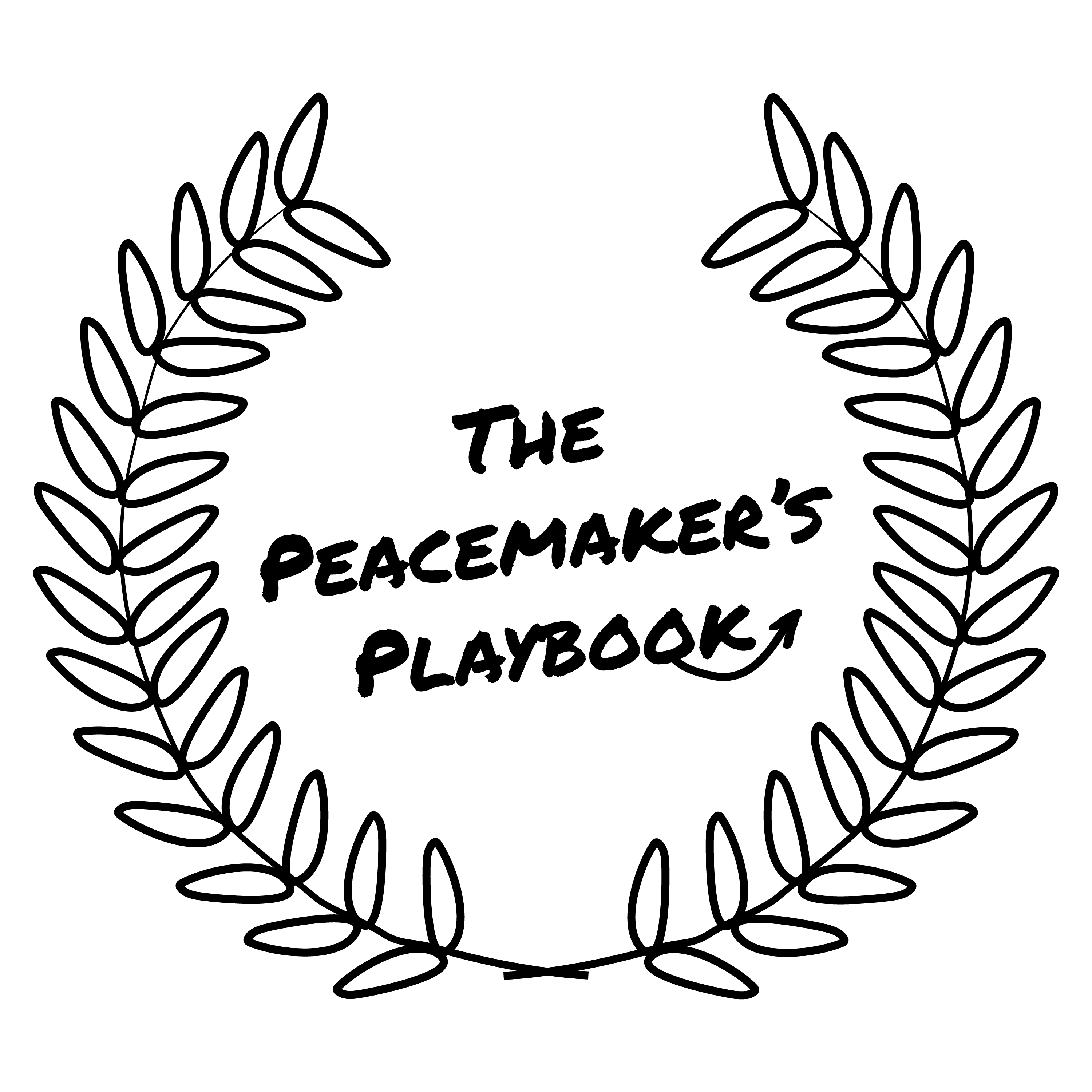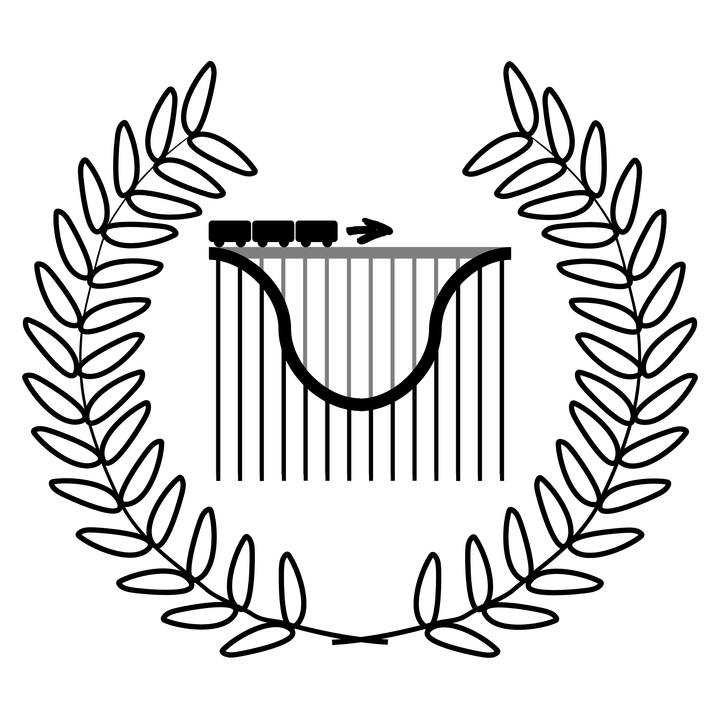Transcript lightly edited for clarity.
Josh: Hi! I’m Josh and with me is my sidekick for this little project, Kaleene. Kaleene also happens to be my wife. We live in divided times. Together, we’re learning how to be kind to our neighbors - and, since we don’t always agree politically, to each other! - and sharing the best tactics we come across with you here, at The Peacemaker’s Playbook.
Today we’re going to take a close look at something that often lies beneath our outrage: fear. If we were to peel back some layers, we’d see that communities throughout the world - and maybe even our individual hearts - are awash in fear. As peacemakers, though, we must master our fear, seeing how our anxieties shape our views and actions.
Kaleene: As Josh said, my name is Kaleene. I'm helping Josh with the project. Our daughter is three, so in the past few years we’ve earned our unofficial PhD in Children’s Literature, but we want to start today with a story with which many are familiar: The Monster at the End of This Book, written by Jon Stone. In it, Grover, the lovable blue Muppet, is terrified of the monster waiting at the end of the book. He becomes so afraid that he tries everything to stop us from turning the pages—tying the book shut, nailing it closed, even building brick walls. But in the end, the "monster" at the end of the book is just... Grover himself.
The irony is that Grover's fear-driven actions cause more trouble than the monster ever could. He creates barriers and obstacles, trying to protect himself from something that ultimately wasn't a threat. And this reminds us of how, in our political world, fear often makes us act in similarly disruptive ways—building brick walls, real or metaphorical, that end up hurting ourselves and others.
Kaleene: What would it look like for us to avoid the trap that Grover, in this case at least, did not?
Josh: “Mastering our fear” means avoiding the panicked sense that everything one hears about or sees on the screen is an emergency that must be dealt with at any cost.
It doesn’t mean being emotionless or un-concerned about current events or so stoic that there’s a disconnect between what neighbors are going through or may go through.
Kaleene: Why is it so important to see how our anxieties shape our views and actions?
Josh: C.S. Lewis offered a warning in That Hideous Strength:
We become just like our enemies—breaking all the rules whenever we imagine that it might possibly do some vague good to humanity in the remote future.
And we see this play out on both sides of the political spectrum. Many on the Left have felt intense fear over leaders like Trump or Putin wielding too much control, so they cause harm by doing things like dismissing stories that challenge their own narratives— like the Hunter Biden laptop story.
Meanwhile, many on the Right have feared figures like the mainstream media, Dr. Fauci, or even Disney exercising undue influence—so they cause harm by doing things like doubling-down on their support for an abuser they think can protect them by sticking it to ‘the bad guys’.
These examples are simplifications. But they show the kind of vicious cycle of escalating destruction that’s becoming all too common. What’s even more tragic is that each side’s fears are essentially self-fulfilling.
Kaleene: But is it just the community that pays the price when we’re controlled by our fear?
Josh: Rudyard Kipling wrote in his poem If—:
If you can keep your head when all about you are losing theirs and blaming it on you...Yours is the Earth and everything that’s in it, and— which is more—you’ll be a Man, my son!
This poem, though written over a century ago, has a message for everyone.
Regardless of gender, staying calm when others are panicking is a sign of sterner stuff beneath the surface and, if made a habit, a form of resilience.
As parents, we’ve been learning from the counselors at our daughter’s school about the importance of nurturing grit, because it’s an even stronger predictor of success than intelligence. Resilience, we’ve learned, is a key component of grit.
So don’t be ruled by your fears, because otherwise you’ll be much less careful with others and with yourself.
Kaleene: Do you have any examples of this in your own life?
Josh: Back in 2016 and 2017, I was eager to believe the most salacious rumors and conspiracy theories about the president-elect and his campaign. And by the way, this is not meant to be a comment on whether any of those allegations were right. It’s just that, looking back, I see now that fear was driving me. Fear of what might happen now that an openly-malevolent person had gained the powers of the presidency. At the time I thought I was doing good, but my fear led me to lower my standards for truth and, frankly, to sometimes make a fool of myself resharing anything and everything that confirmed my beliefs.
Thankfully I only had like two Twitter followers.
But something similar happened at the start of the COVID. I was afraid and adopted a maximalist approach to prevention. Again, this is not meant to be a comment on whether particular measures were right at specific points during the pandemic. I’m simply reflecting on my views and behaviors at the time, and I wish I’d been more self-aware and that fear hadn’t been such a major source of fuel for me.
Kaleene: It would be interesting for each of us, listeners included, to conduct a "Fear Audit" on our political views. Pick a strong opinion we hold, and ask ourself, "What am I afraid might happen if the opposite were true?" Reflect on how this fear influences your perspective, your factchecking, and your actions. Are our fears causing harm, making you act in ways that create the very problems you're trying to avoid?
Josh: Yoda was right:
Fear is the path to the dark side. Fear leads to anger. Anger leads to hate. Hate leads to suffering.
So master your fear. See how your anxieties shape your views and actions.
That’s it for today! Join us next time for The Peacemaker’s Playbook!
Stone, Jon. The Monster at the End of This Book. Golden Books, 2004.
French, David. “God Save America From Fearful Christians.” The Dispatch, 14 June 2020, thedispatch.com/newsletter/frenchpress/god-save-america-from-fearful-christians.
Lewis, Clive Staples. The Space Trilogy. HarperCollins, 2013.
“Getting Gritty: Building GRIT in ourselves and our kids” workshop. Local school.
Duckworth, Angela. Grit: The Power of Passion and Perseverance. Simon and Schuster, 2016.
Lucas, George, director. Star Wars: Episode I - The Phantom Menace. Lucasfilm, 1999.
And a special thank you to our interns, Claude and ChatGPT, for serving as our brainstorming partners and for creating a draft outline and draft script for us. Some of ChatGPT's suggested wording made it into our final script.




Member discussion: